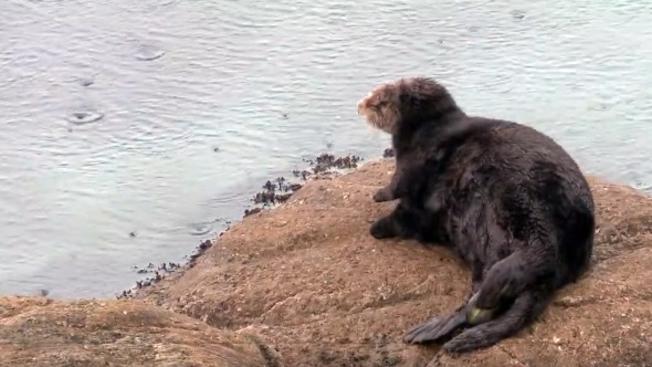MONTEREY, Calif. — Visitors had the unique opportunity of witnessing the birth of a wild sea otter, as its mother took shelter in the Great Tide Pool at the Monterey Bay Aquarium in central California on Saturday.
Sea otters can give birth in water or on land, explained museum authorities in a statement published Sunday. As soon as the little pup was born, its mother started grooming its body to help it stay warm and “buoyant”.

Grooming is also important because it boosts the blood flow and other internal systems of the pup, which will be biting invertebrates in nearshore ecosystems in the future, like the kelp forests in Monterey Bay, said the Aquarium.
It seems that witnessing the birth of a sea otter is not a common phenomenon. Researchers at the Monterey Bay Aquarium said that they have been watching otters for years and they had never seen a birth close up like this before.
“We’re amazed and awed to have had a chance to witness this Monterey Bay conservation success story first hand in our own backyard. Welcome to the world, little otter!” wrote the Aquarium on Sunday.
These extraordinary creatures are the second smallest marine mammals on Earth and they do not have a layer of blubber to help them keep warm. However, they have a very dense fur, which has from 250,000 to a million hairs per square inch, wrote Defenders.org.
Over the last years, sea otters were considered as an endangered species. According to personnel from the aquarium, they were hunted to near extinction. Fortunately, their populations have been increasing recently, as a result of legislative protection. It is calculated that there are 3,000 sea otters in California, according to Defenders of Wildlife.
Aquarium staff said on Facebook that mom and pop are still in the tidepool at the moment, however, they could “head out to at any time”. The mom, that was taking shelter from stormy seas, and her pup, are not part of the Sea Otter Program carried by the aquarium, so they will be returning to the wild forest at any time.
Source: Monterey Bay Aquarium
